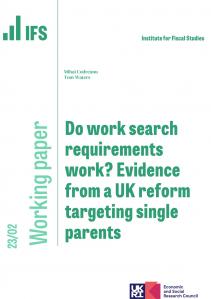Rishi Sunak has abandoned plans for an autumn budget. Instead last Thursday he unveiled a further series of measures to support businesses and jobs.
The centrepiece was the new job support scheme which provides a government subsidy to employers that keep employees on, but only if they are working at least a third of their normal hours. The subsidy requires employers to pay for some of the hours not worked. This is much less generous than the furlough scheme which it replaces. It is quite expensive to hold on to workers part time under the scheme. Employers end up paying 55 per cent of their normal wages for 33 per cent of their normal hours. It would still be cheaper to employ one person full time than two people half time. This will, without question, result in a lot of jobs being lost relative to what would have happened had the furlough scheme been maintained, even in its less generous October manifestation in which employers have to pay 20 per cent of the normal wages of those on full furlough.
So, does this make sense? To assess that we need to look at where it sits in the overall structure of the economic response to the crisis.
In phase one, put in place at speed back in March, the focus was all about protecting as many jobs and businesses as possible through the national lockdown. At that stage it seemed possible that things could be getting back to normal by the summer or autumn. It was clearly right to protect those jobs and businesses, spending whatever was necessary to do so. It would have been absurd to risk mass closures and mass unemployment in the face of such a short temporary shock.
Phase two was kicked off in July’s summer economic update as we came out of lockdown. It announced a series of tax cuts and spending increases aimed at boosting demand in the economy — most obviously through the Eat Out to Help Out scheme and the cut to stamp duty on property purchases. This was a move from preserving the economy to trying to get it moving again. We saw a bit more of it last week as the VAT cut for the hospitality sector was extended.
Had the virus, and with it additional restrictions, not resurfaced then we could have expected a budget offering more of the same — measures aimed at boosting demand and employment through a recovery phase. Instead, with the virus spreading fast and restrictions being tightened, the focus had to revert to some form of preserving jobs and businesses. But in phase three the form of preservation has changed. Six months after original lockdown the chancellor has made a very big, tough call. He’s not trying to preserve the old economy in aspic any longer. He’s decided that too many of those jobs are not viable in the longer run. That six months is long enough, that there is little to be gained from keeping millions of employees at home doing nothing on 80 per cent pay.
That is tough, especially on those sectors — such as nightclubs and in the arts — that are still not able to open. A lot of jobs in a lot of sectors will return once things get back to some form of normal. But we don’t know how many or which ones. Mr Sunak is betting that employers will be willing to preserve the jobs for the employees that really matter to them. The lack of generosity of the scheme is genuinely striking. But it is a feature, not a glitch.
This trade-off between keeping current jobs going and wasting money on jobs that won’t be viable in the longer run will have been top of his mind. He must also have been glancing nervously at the public finances. We got more scary numbers on Friday. The ONS reported that, just five months into the financial year the deficit stood at £174 billion, three times what it was supposed to have been over the whole year. We are heading for more borrowing this year, as a fraction of national income, than in any year in history outside of the two world wars. Ultra-cheap borrowing costs make this entirely manageable for now, and continued support for the economy is required. But we are in uncharted territory.
We will have to wait for phase four, the return to some form of normal when longer-term economic and fiscal plans will be laid out. For now, Mr Sunak will have to remain nimble. He must be prepared to change tack when circumstances change. Whether or not he made the right decision to end furlough and replace it with the job support scheme, I hope he did it for the right reasons and not because he was worried about being accused of a U turn, having promised that the furlough scheme would end. Right now being willing to change tack in the face of changed circumstances is perhaps more important than anything else.
As for phase four, the return to normality, Mr Sunak needs to learn one big lesson from policy in the wake of the financial crisis. From 2010 on that policy was dominated by the desire to reduce the deficit. But it lacked a crucial second leg: an actual economic strategy focused on productivity, growth and economic success.
Phase four must not just be about getting the huge deficit down. It must involve a smart economic strategy for infrastructure investment, education, economic governance, tax reform and more besides. That is hard, much harder than cutting spending or raising taxes. He has bought himself some time before a spring budget. He and his officials need to use that time wisely.
This article originally appeared in The Times and is used here with kind permission.








